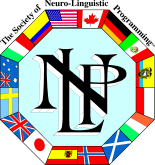

การลบ ใน เมต้าโมเดล เราได้เรียนรู้เกี่ยวกับการลบ ในความหมายของ เมต้าโมเดล เราได้เรียนรู้ที่จะเปิดเผยข้อมูลที่ถูกลบออกไปในคำชี้แจงที่ลูกค้าให้ไว้
โดยพื้นฐานแล้วทุกอย่างที่เราได้เรียนรู้ใน เมต้าโมเดล ที่จะเก็บสะสม ลบ, บิดเบี้ยว หรือ ทั่วไป ข้อมูลเราทำแบบกลับหัวกลับหาง ภาษาแบบ มิลตันโมเดล.
ใน ภาษาแบบ มิลตันโมเดล เราใช้มันในทางตรงข้าม จำไว้ว่า ภาษาแบบ มิลตันโมเดล ใช้ภาษาที่คลุมเครือเพื่อชี้นำจิตใต้สำนึกไปในทิศทางที่เราต้องการชี้นำลูกค้าของเรา
นั่นคือเหตุผลว่าทำไม ภาษาแบบ มิลตันโมเดล เรียกอีกอย่างหนึ่งว่า ส่วนที่ตรงข้ามของโมเดลเมตา.
การใช้ ภาษาแบบ มิลตันโมเดล คุณสามารถบรรลุสิ่งนี้ได้โดยไม่จำเป็นต้องรู้ว่าความสำเร็จหรือประสบการณ์เฉพาะเจาะจงเหล่านั้นคืออะไร เพียงแค่พูดว่า “จากสิ่งที่คุณได้ทำมาจนถึงตอนนี้ คุณได้บรรลุสิ่งต่างๆ มากมายแล้ว” หรือ “ความก้าวหน้าที่ดีทั้งหมดที่คุณมี อนาคตของคุณจะสดใสขึ้นเรื่อยๆ”
มาเจาะลึกการลบโมเดลมิลตันกันต่อ
โปรดจำไว้ว่าเราใช้แบบจำลองมิลตันสำหรับการสะกดจิต การใช้ภาษาที่ไม่เฉพาะเจาะจงมีจุดมุ่งหมายเพื่อชักนำและทำให้สภาวะภวังค์ลึกลง เพื่อนำลูกค้าของคุณเข้าสู่จิตใต้สำนึก ตอนนี้ มาเจาะลึกในหมวดหมู่ย่อยต่างๆ ของการลบใน ภาษาแบบ มิลตันโมเดล.
การลบแบบง่าย
ในแบบจำลองมิลตัน การลบข้อมูลเพียงเล็กน้อยเกี่ยวข้องกับการละเว้นรายละเอียดหรือข้อมูลสำคัญในคำกล่าว โดยปล่อยให้ผู้ฟังต้องเติมข้อมูลตามความเข้าใจและประสบการณ์ของตนเอง วิธีนี้ทำให้เกิดความคลุมเครือและทำให้ผู้ฟังยอมรับความหมายที่แนะนำได้ง่ายขึ้นโดยไม่ต้องมีสติสัมปชัญญะ
“แผนที่โลก” ของผู้ฟัง (การแสดงความคิดและความเชื่อภายในของพวกเขา) ช่วยในการตีความข้อมูลที่ขาดหายไป นำไปสู่ความเข้าใจที่ลึกซึ้งยิ่งขึ้น และอาจส่งผลต่อความคิดหรือพฤติกรรมของพวกเขา
ตัวอย่างเหล่านี้มีประโยชน์ในการสร้างแรงบันดาลใจให้กับผู้คน:
- “เราทุกคนต่างก็อยู่ในเส้นทางแห่งความสำเร็จ” ไม่ได้บอกว่าต้องทำอย่างไร แต่ฟังดูดี
- “หากคุณพอใจ เราก็จะไปต่อ” ไม่ได้บอกว่าพวกเขาพอใจเรื่องอะไร หรือเราจะไปต่อที่ไหน แต่บ่อยครั้งที่คุณไม่จำเป็นต้องบอก
ในการสนทนาในชีวิตประจำวัน เรามักจะใช้การลบข้อความธรรมดาๆ หลายครั้ง มิฉะนั้นแล้ว การจะพูดอะไรสักอย่างก็คงใช้เวลานานทีเดียว ในการสนทนาปกติ
การลบเปรียบเทียบ
“ตอนนี้คุณแข็งแกร่งขึ้นมาก” – แข็งแกร่งกว่าอะไร? เมื่อเทียบกับใคร? แข็งแกร่งกว่าเมื่อสัปดาห์ที่แล้ว? บางทีอาจทั้งสองอย่างก็ได้ คุณสามารถปล่อยให้ลูกค้าของคุณตีความคำพูดนั้นตามความคิดของตนเองได้
คุณสามารถเชื่อมโยงการลบแบบเปรียบเทียบสองรายการได้ โปรดจำไว้ว่า เหตุและผล การเชื่อมโยง – “ยิ่งคุณฝึกฝนมากเท่าไหร่ คุณก็จะเก่งขึ้นเท่านั้น” ตัวอย่างนี้เชื่อมโยงกิจกรรมการฝึกฝนกับการพัฒนาตนเองให้ดีขึ้นทุกครั้ง (รูปแบบยิ่งมากยิ่งดี)
และคุณยังสามารถใช้การลบแบบเปรียบเทียบสองรายการได้ เมื่อคุณต้องการให้ผู้คนหยุดทำสิ่งหนึ่งแล้วเริ่มทำอีกสิ่งหนึ่ง เอลวิส เพรสลีย์ แต่งเพลงเกี่ยวกับเรื่องนี้ได้ดีมาก: “สนทนาให้น้อยลง ลงมือปฏิบัติให้มากขึ้น”
คำนามที่ไม่ระบุหรือดัชนีอ้างอิงที่ไม่ระบุ
-ของมัน ไปได้ดีใช่ไหม มัน” อะไรกำลังไปได้ดี ตอนนี้คุณเริ่มเข้าใจแล้วว่า 'มัน' หมายถึงความรู้ของคุณที่เพิ่มมากขึ้นเรื่อยๆ ภาษาแบบ มิลตันโมเดล.
บางสิ่งเกิดขึ้นอย่างรวดเร็ว และบางสิ่งเกิดขึ้นอย่างช้าๆ ก่อนที่ทุกอย่างจะเข้าที่เข้าทาง สิ่งใดบ้าง? ไม่จำเป็นต้องระบุ เพราะอันที่จริงแล้ว การได้สัมผัสประสบการณ์ทั้งสองประเภทนั้นเป็นเรื่องดี
เรามาเริ่มต้นด้วยการคิดถึงการเรียนรู้ใหม่ๆ ที่คุณได้เรียนรู้ระหว่างที่เรียนรู้เกี่ยวกับ Milton Model มากมาย ฉันสงสัยว่าคุณสามารถมองเห็นความเป็นไปได้และโอกาสใดบ้างสำหรับการประยุกต์ใช้ที่มีประโยชน์ และโอกาสใดบ้างสำหรับการเสริมสร้างทักษะการสะกดจิตบางประการที่คุณเคยรับรู้แล้ว?
ลองสังเกตดูว่าประโยคสุดท้ายไม่ได้ระบุว่าคุณได้เรียนรู้อะไรบ้าง มีความเป็นไปได้และโอกาสอะไรบ้าง คุณจะเห็นการประยุกต์ใช้อะไรบ้าง และคุณต้องการพัฒนา พัฒนา และเชี่ยวชาญทักษะการสะกดจิตด้านใดบ้าง ไม่จำเป็นต้องทำ เพราะคุณคงพบตัวอย่างของแต่ละอย่างในประโยคนี้แล้ว อันที่จริง การระบุ "ทักษะการสะกดจิต" ก็ไม่สำคัญเช่นกัน เพราะสำหรับบางคน จะเป็นทักษะ สำหรับคนอื่น จะเป็นการฝึกหัด และบางคนอาจสื่อสารผ่านกราฟิกหรือการกระทำ และนั่นคือสิ่งที่คุณนึกถึงตอนนี้
กริยาที่ไม่ระบุ
คุณเคยพบใครสักคนในที่ทำงานคอยจู้จี้จุกจิกไหม? การใช้คำกริยาที่ไม่ระบุถือเป็นวิธีแก้พิษ เมื่อใครสักคนมีประสบการณ์ในการทำงานและได้รับผลลัพธ์ที่ดี คุณไม่จำเป็นต้องบอกพวกเขาอย่างละเอียดว่าต้องทำอย่างไรในแต่ละขั้นตอน เพราะพวกเขารู้เรื่องนี้อยู่แล้ว ในความเป็นจริง พวกเขาอาจรู้ดีกว่าคุณด้วยซ้ำ เพราะนั่นคือหน้าที่ของพวกเขา
คุณจึงบอกพวกเขาได้ว่าคุณต้องการให้พวกเขาทำอะไร โดยไม่ต้องระบุเจาะจงเกินไปว่าพวกเขาทำอย่างไร “ปีนี้เราจะขยายยอดขายเป็น 50% ไหม”
ตัวอย่างอีกประการหนึ่งคือ: "ฉันต้องการให้คุณรู้สึกสบายใจกับโปรแกรมใหม่"
คำกริยาที่ไม่ระบุก็เป็นเครื่องมือที่ดีในการกำหนดทิศทางความคิดของผู้คนเช่นกัน ตัวอย่างเช่น ในการขาย: “การซื้อเครื่องจักรนี้จะช่วยเพิ่มผลกำไรของคุณอย่างมาก” จากนั้นคุณอาจต้องให้ข้อมูลเพิ่มเติมเพื่อสนับสนุนคำกล่าวอ้างโดยนัย
นี่เป็นอีกตัวอย่างหนึ่ง คำกริยาที่ไม่ระบุนั้นมีประโยชน์มากในการสร้างแรงบันดาลใจในการคิดสร้างสรรค์ โดยเฉพาะอย่างยิ่งเมื่อใช้ร่วมกับตัวดำเนินการโมดอลของความเป็นไปได้ เช่น “เราจะขยายรายได้ได้อย่างไร” “อะไรจะช่วยปรับปรุงกระบวนการให้มีประสิทธิภาพมากขึ้นได้บ้าง”
สุดท้ายแต่ไม่ท้ายสุด
การสรุปสั้นๆ ของโพสต์นี้ไม่ได้ทำให้เสียหาย วันนี้คุณได้เรียนรู้เกี่ยวกับโมเดลมิลตันและการลบโดยเฉพาะแล้ว เมื่อใดก็ตามที่คุณเริ่มฝึกฝน เมต้าโมเดล หรือว่า ภาษาแบบ มิลตันโมเดลจำความแตกต่างสองประการนี้ไว้:
- การ เมต้าโมเดล มุ่งเน้นที่จะนำความชัดเจนและความแม่นยำมาสู่การสื่อสารโดยท้าทายความคลุมเครือและระบุรูปแบบของความเชื่อที่จำกัด
- การ ภาษาแบบ มิลตันโมเดลมีเป้าหมายเพื่อหลีกเลี่ยงการต่อต้านโดยมีสติและแตะเข้าไปในกระบวนการที่ไม่รู้ตัวโดยใช้รูปแบบภาษาที่คลุมเครือและชวนคิดอย่างมีศิลปะ
โปรดจำไว้เสมอว่าการเพิ่มประสิทธิภาพของคุณในฐานะ NLP Practitioner, รู้เจตนาเชิงบวกของคุณสำหรับข้อความที่คุณต้องการจะสื่อ สร้าง ความสัมพันธ์ และใส่ใจกับสิ่งที่คุณใช้และวิธีที่คุณใช้ภาษา ปล่อยให้ผู้คนและธุรกิจอยู่ในสถานที่ที่ดีขึ้นกว่าที่คุณพบพวกเขาทุกวัน!
Mind Tools ให้บริการ NLP Practitioner และ NLP Master Practitioner การฝึกอบรมและการรับรอง เราให้การศึกษาแก่คุณตามมาตรฐานสูงสุดและมีชื่อเสียงล่าสุดที่กำหนดโดย Society of NLP. เราจะฝึกคุณให้ทั่วถึงทุกซอกทุกมุม การเขียนโปรแกรมทางประสาทภาษา และสิ่งพิเศษเพิ่มเติมบางส่วนที่เราได้เรียนรู้จาก ริชาร์ด แบนด์เลอร์ โดยตรง.
- บริษัท มายด์ ทูลส์ จำกัด
- การลบ
- ทั้งหมด
- ความคลุมเครือ
- โค้ช
- รูปแบบการกระตุ้นทางอ้อม
- Life Coaching
- ภาษาแบบ มิลตันโมเดล
- ความคลุมเครือของ NLP
- การทำเครื่องหมายอะนาล็อก NLP
- NLP Coaching




